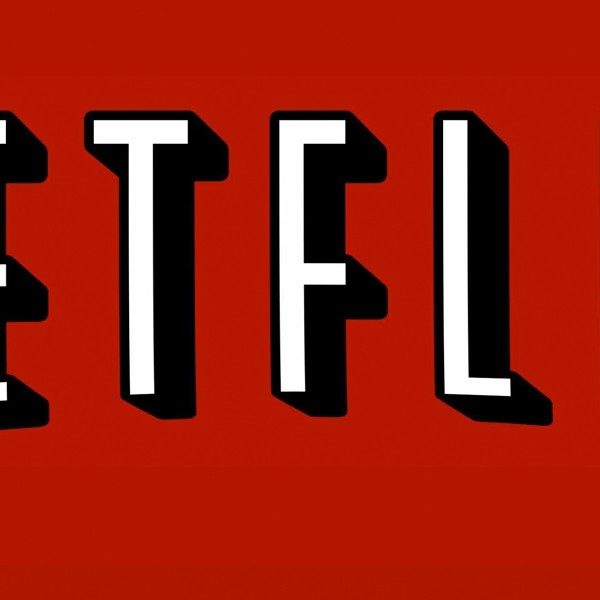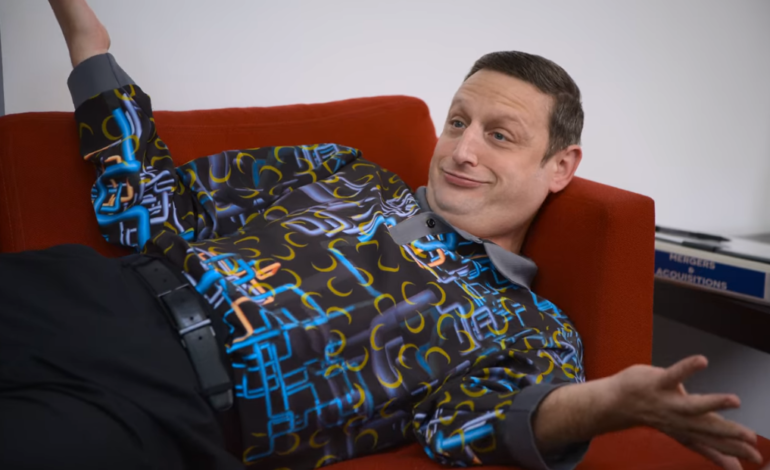

There are two kinds of people in this world: those that just don’t seem to get I Think You Should Leave, and those that haven’t stopped giddily quoting the show since it first premiered in 2019 on Netflix.
Superfans of the show live and breathe the cult sensation sketch comedy series, created by Tim Robinson (Detroiters) and Zach Kanin (Saturday Night Live) and produced by The Lonely Island. Diehard fans are still embroidering season one quotes onto pillows, they’re making viral memes on Facebook fan groups, and they’re dressing up as the Turbo Team for Halloween. Now, the much-anticipated wait is over as season two of I Think You Should Leave became available for streaming on July 6th.
The obsession is real, and that’s because Tim Robinson changed comedy for the better.
In 2019, I Think You Should Leave felt like the arrival of the comedy show we’ve all been waiting for but never even knew we needed. With just six episodes clocking in around sixteen minutes each, it’s cringe-worthy characters and fluid sketches that transcended typical sketch format made it unlike any other comedy show on the air, and certainly made it the most quotable. When it comes to sketch, people are used to either seeing laborious Saturday Night Live sketches upwards of eight minutes or lightning speed comedy quips on TikTok in under a minute. I Think You Should Leave was the perfect middle ground.
Viewers knew they were in for an awkward ride the moment the first season opened with a man in a coffee shop busting a door off of it’s frame after he refused to accept that it didn’t push and pull both ways. “I was here yesterday. It goes both ways.” Incredible. Now, season two is in the exact same vein, mainly revolving around unhinged male characters that have zero self-awareness, often played by Robinson.
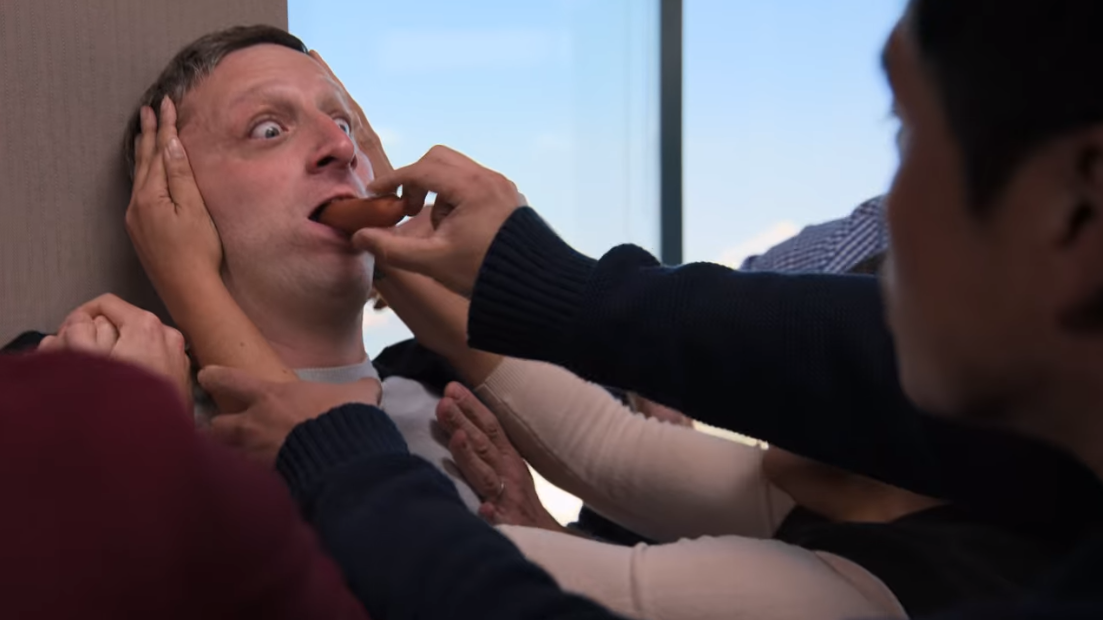

Episode one, titled ‘They said that to me at a dinner,’ kicks off with Robinson depicting an employee that sneaks a hot dog up his sleeve and into a business meeting after he found out lunch was being pushed back an hour. Without spoiling anything, let’s just say it escalates quickly in Robinson and Kanin’s explosive writing fashion. This is the framework for most of Robinson’s characters: they don’t want to be seen as losers, but by relentlessly trying to defend their own honor or get people to see things from their point of view, it only makes their situation worse.
Simply put, they just don’t know when to stop. If someone tells them to be quiet, they get louder. If someone tells them to leave, they stay.
Such is the case in this season’s most memorable sketches, like ‘Ghost Tour:’ Robinson plays an abrasive guest on a ghost tour that gets overly excited when the tour guide jokingly tells the tourists that, since it’s the adult tour, they can say whatever the “hell” they want. Robinson’s character assumes this gives him free range to refer to the ghosts as “little f*ckers” as much as he desires, and the rest is history. He doesn’t know how to take a hint that he’s making everyone uncomfortable: they think he should leave.
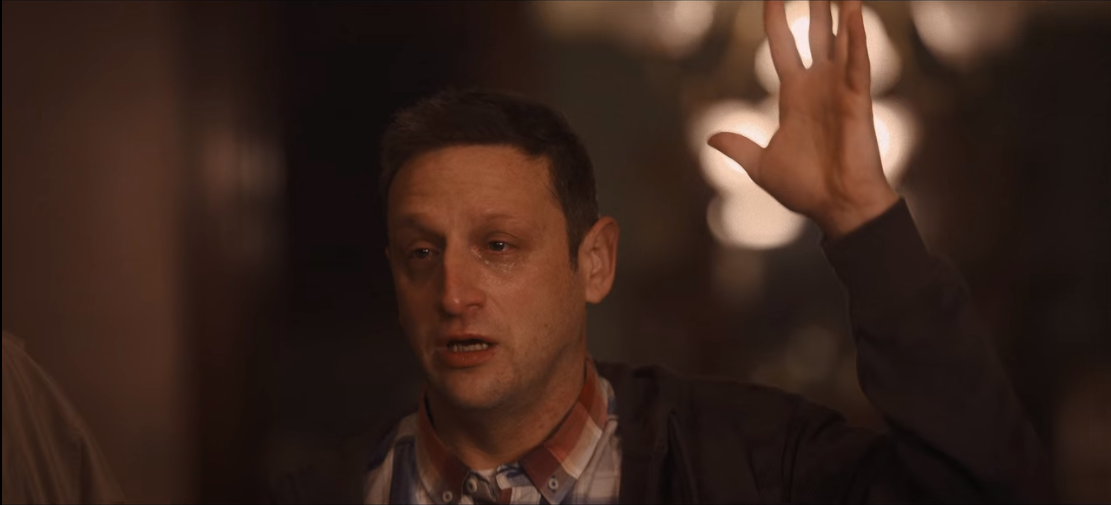

After a rough pandemic year, it only feels natural for the sketches to be a little darker and have more of an anxious undercurrent than season one. There’s a lot of moments where grown men cry or yell because they just can’t seem to find where they fit in the world or are incapable of making friends because they don’t know how to read the room.
The thing that makes us cringe the most while watching these characters reach their social downfall is that they all seem like people we’ve seen in our own ordinary lives. The Weird Guy at work. Obnoxiously Loud Dude at the bar. We’ve seen them, and often times we fear that we are them.
To make this material even more rooted in reality, most of the supporting characters are played by actors that aren’t well known so it feels like we are right in the room with them. Sure, there are definitely a few notable cameos by big hitters like Bob Odenkirk (Better Call Saul) and Tim Heidecker (Tim and Eric), but they are outnumbered by the up-and-comers that steal the show, like John Early (Search Party), Patti Harrison (Shrill), and Conner O’Malley (Late Night With Seth Meyers).
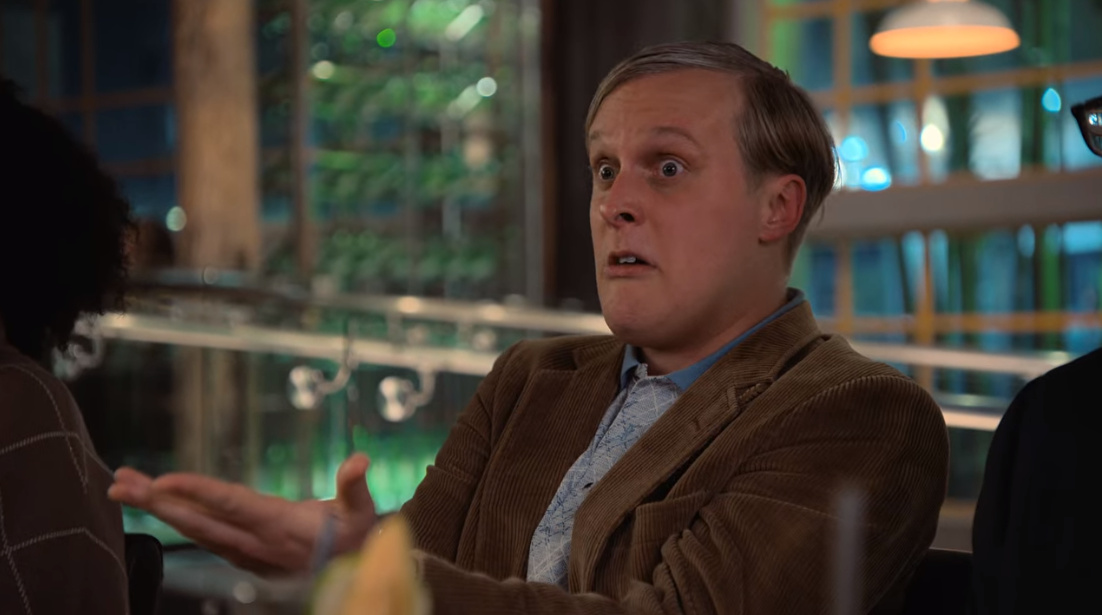

Robinson himself looks like the unassuming Dad or co-worker you’d run into at the grocery store, but don’t be fooled by appearances, he’s been in the game for a while. Robinson has been honing his craft since he dodged college and opted to take improv classes at Second City Detroit until he eventually became a performer with Second City Chicago. In 2012, Robinson became a featured performer on Saturday Night Live, which is where he would meet Kanin and form a comedy kinship that transcended multiple projects, eventually leading them to I Think You Should Leave.
Together, they created a series that you can try and try to compare to the likes of other sketch shows, but nothing holds a candle.
If you’ve ever paid way too much money to take a sketch comedy class, then you know that the basic structure of a sketch is typically three heightened “beats” that revolve around the “game” of the sketch, then closing with a kicker. In I Think You Should Leave, those rules are not only shattered, but Robinson and Kanin completely flip the formula and take us across other dimensions and intergalactic worlds all within the span of one sketch. A sketch can simply start off with someone on a walk around Los Angeles, and end in outer space.
This kind of fluidity in sketch writing has made the series a cosmic shift for comedy. It makes aspiring writers feel like they can experiment with the typical structure of a sketch and explore new ways to depict the mundanities of life. Some comedians even took to Twitter to share how I Think You Should Leave changed their mindset forever:
season one of I Think You Should Leave permanently altered the chemistry of my comedy brain and i’m genuinely very very excited to see how season two poisons me forever
— Jeremy Kaplowitz (@jeremysmiles) June 9, 2021
for us, it changed tv, writing, twitter, and how we look at and speak to each other. then it helped get us through the first year of hardship and adapt to a changed world. it rose to the occasion
— I think you should leave turbo team 2.0 (@ITYSL) July 5, 2021
Overall, season two is a triumph. Lovers of the show won’t be disappointed and will be happy to see just as many hot dogs, “huge dumps,” and crying men as season one. After the year we had, I Think You Should Leave reminds us that laughter is truly the best medicine. Well, laughter and a vaccine.

